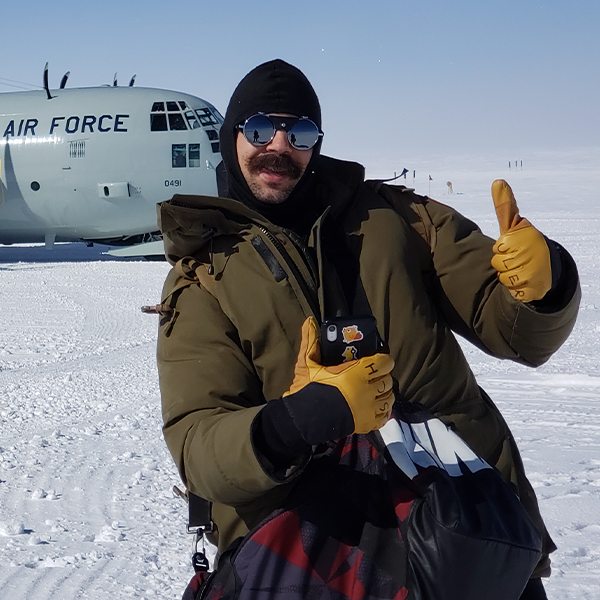Research in Extreme Environments

It is easy to feel like you are falling behind or missing out as you go through the process of pursuing an advanced degree. We often find, however, that things fall in place exactly as they are meant to, whether we planned for it or not. That is one of the defining takeaways when learning about how Caleb Schuler came to receive his PhD in microbiology at UT.
Before starting college at 25, Schuler had an active career in the military as a Navy reserve, simultaneously working at UPS. When he started working towards his Bachelor of Science in Biology, Schuler looked for ways to connect his love for geology and astronomy with biology.
After doing research in a microbial ecology and astrobiology lab during his undergraduate studies, Schuler decided to apply for graduate school. He attributes his ability to pursue and work on both his bachelors and PhD to his experience in the military.
“The military background has really helped me,” Schuler said. “The stress that a lot of graduate students go through never seems to impact me that much. It’s still stressful, but it’s the kind I can handle in a way that people who haven’t been deployed don’t really have.”
Much of Schuler’s research in graduate school involved intensive fieldwork in the lab of Jill Mikucki, associate professor of microbiology. The field work and missions he had to do in the military was important for the challenging environments he would encounter as part of his PhD.
His dissertation focused on three projects, each of which involved field work in extremely cold, desolate environments.
The first chapter was a project examining the possible contamination mechanisms that come from using a novel probe for sample acquisition. This was a project he was primed for, with his military background making him the ideal candidate to spearhead the project.
The second project was originally meant to expand on the melt probe research in the first chapter, but when they got to the field site, found they had arrived a little too late in the season. Instead, he took the opportunity to study the life cycle of snow algae, and how it in turn impacts the communities in that ecosystem.
The final project in Schuler’s dissertation involved trying to figure out how the phototropic inhabitants of a microbial mat in Antarctica are able to adapt and remain active despite the constant daylight or lack thereof as seasons change throughout the year. Schuler’s PhD work took him from the mountains of Wisconsin and Washington, to the extreme environments of Greenland and Antarctica.
“Everyone has, in those harsh conditions, their own limits. The most important thing is to understand yourself so you can accomplish tasks,” Schuler said. “That’s something I learned through my experience being a supervisor at UPS and being in the Navy. I really knew I would react in these different environments.”
Despite not having the most traditional path to his PhD, Schuler’s experiences primed him for it nonetheless. He continues drawing strength from his military experience coming out of graduate school and into the professional realm.